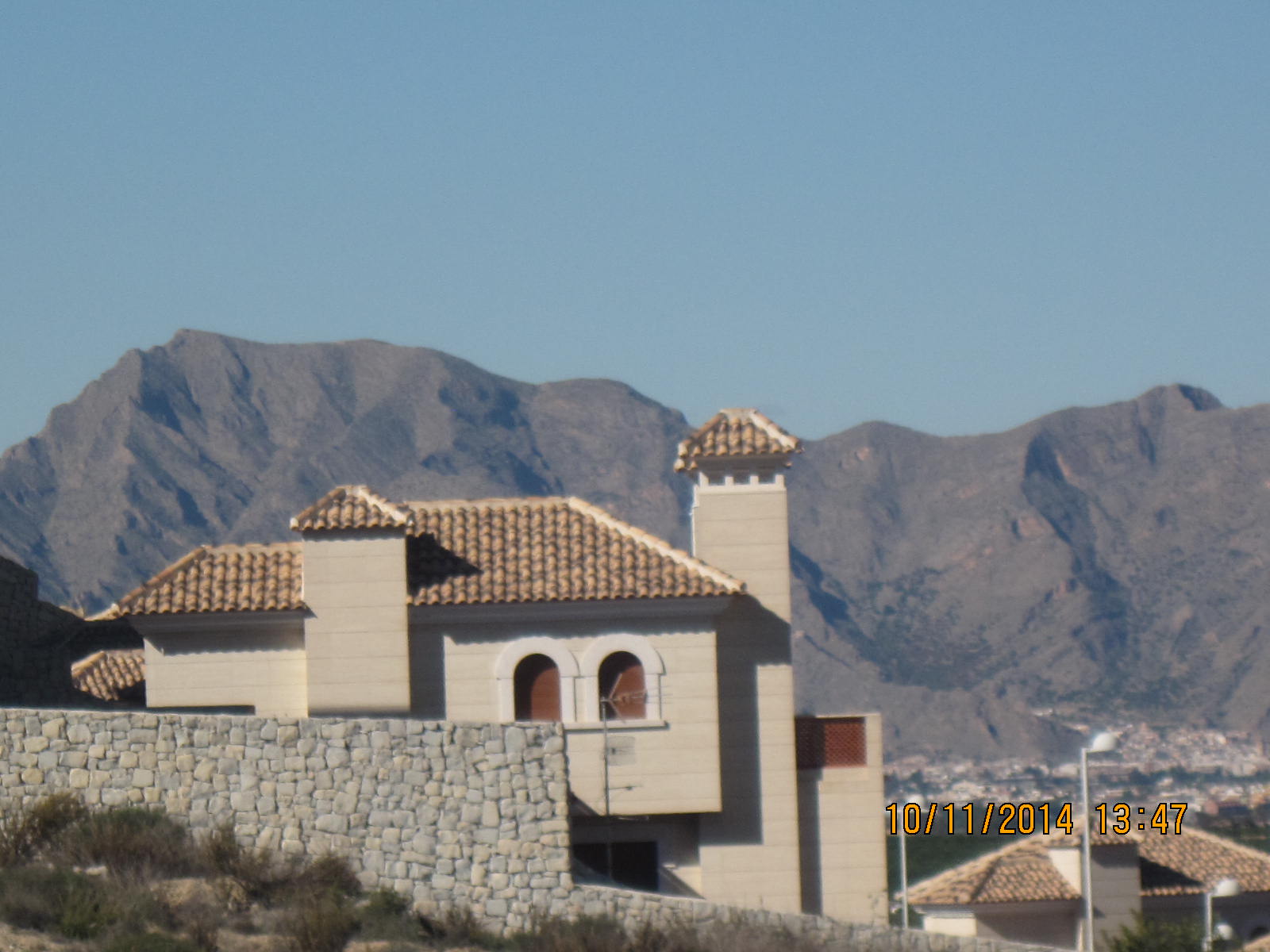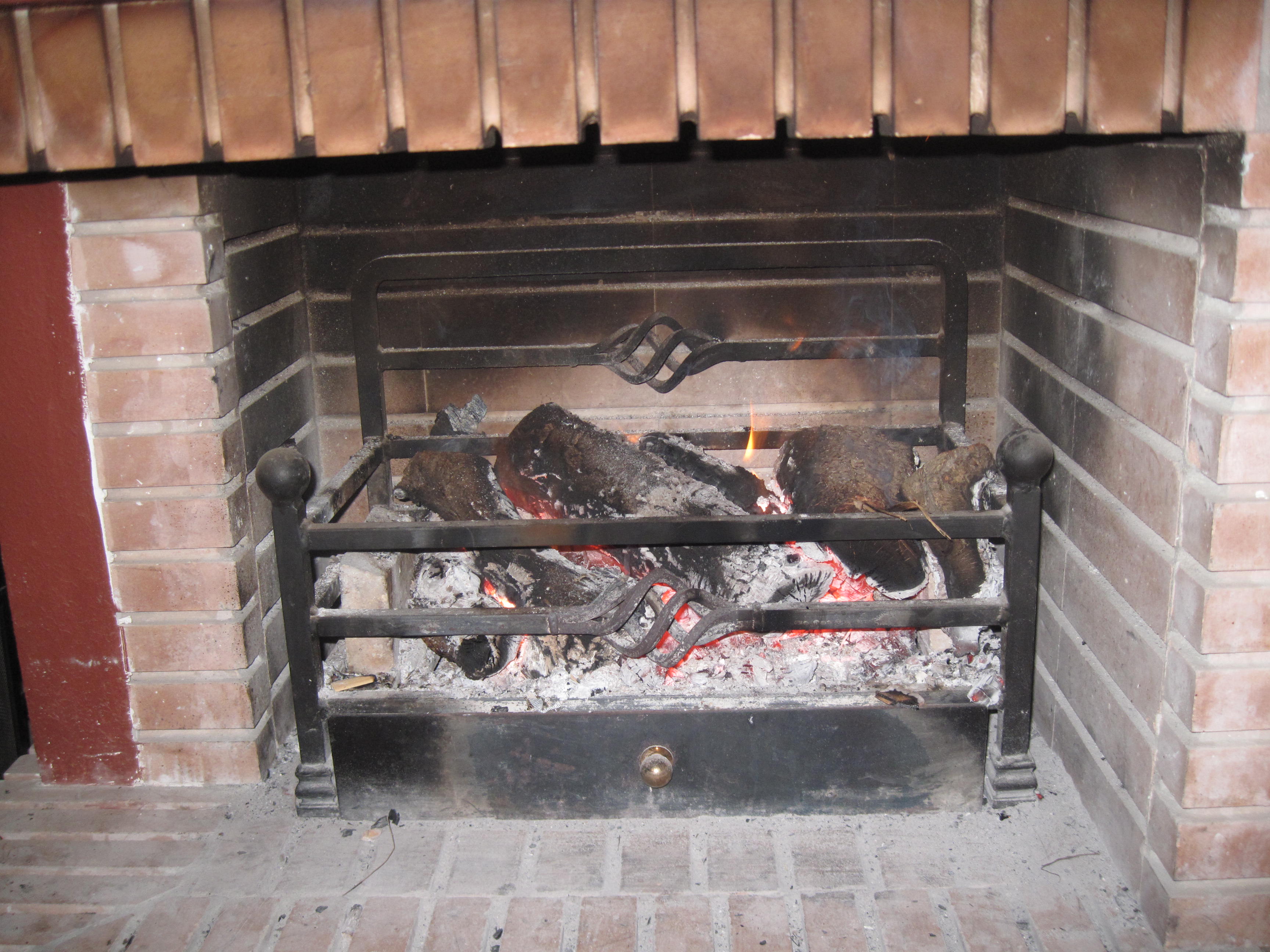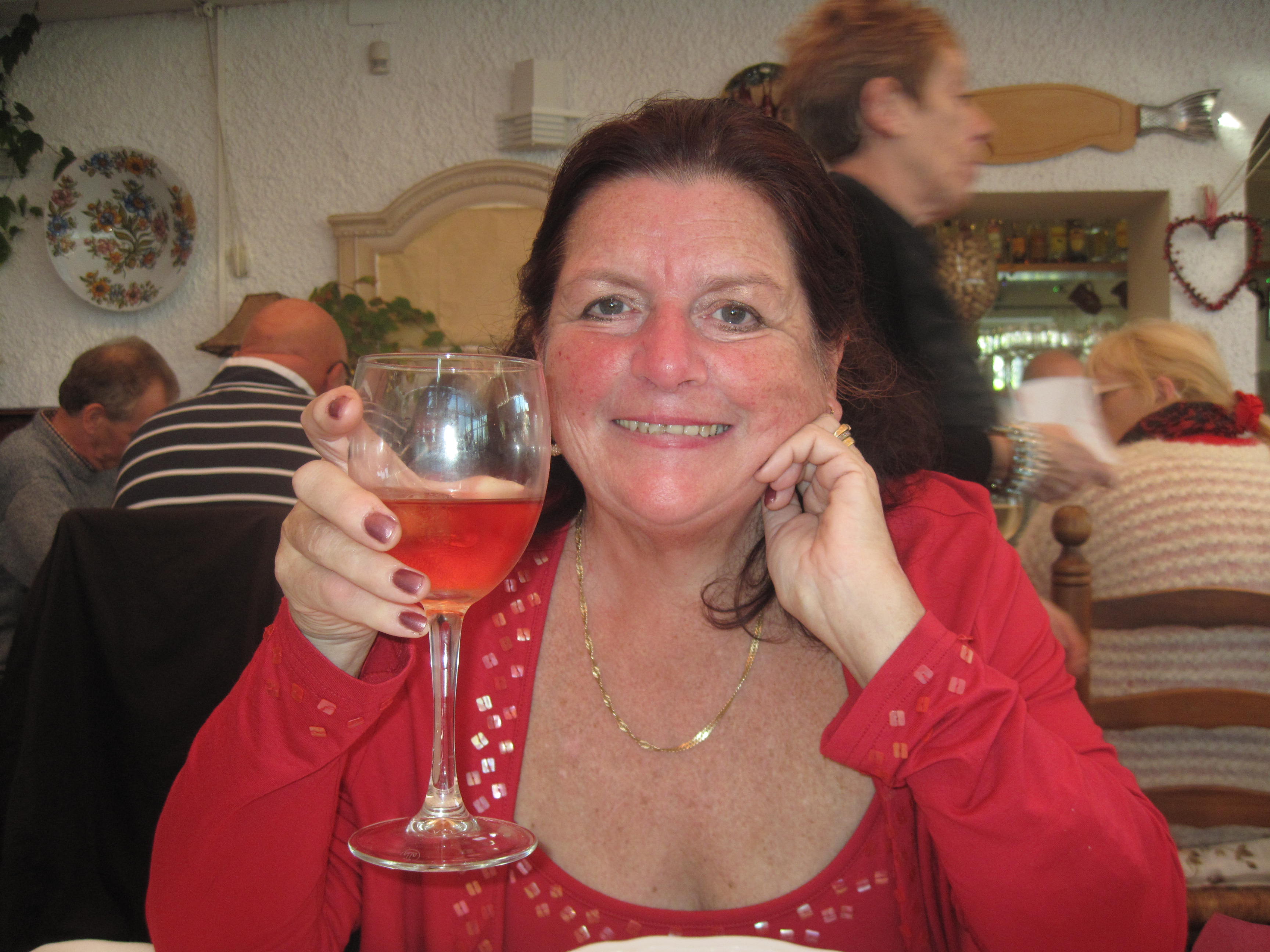The earth moved for me on Sunday morning!
Wednesday, January 14, 2015
 Just after 7.00 am on Sunday, I felt the earth move for the first time in quite a while. Sorry to disappoint my more salacious readers, but Tony hadn't been at the little blue pills again - he's saving those for his birthday. But I digress. What sounded like a big truck went rumbling past, and woke Paddy. However, it can't have been a truck, because our friends on the other side of La Finca heard it at the same time. Nor was it the intruder Paddy obviously thought it was as he raced around the doors. The 'big truck' was an earthquake at 3.2 on the Richter scale, which wasn't enough to cause damage to the apartment or its contents but was strong enough to rattle the patio doors and the front door. Just after 7.00 am on Sunday, I felt the earth move for the first time in quite a while. Sorry to disappoint my more salacious readers, but Tony hadn't been at the little blue pills again - he's saving those for his birthday. But I digress. What sounded like a big truck went rumbling past, and woke Paddy. However, it can't have been a truck, because our friends on the other side of La Finca heard it at the same time. Nor was it the intruder Paddy obviously thought it was as he raced around the doors. The 'big truck' was an earthquake at 3.2 on the Richter scale, which wasn't enough to cause damage to the apartment or its contents but was strong enough to rattle the patio doors and the front door.
The epicentre of the earthquake was in Los Montesinos, about 5 kilometers away, and there was another, milder tremor a few minutes later.According to the Euro-Mediterranean Seismology Centre, it covered an area of 15 kilometres. So, why did Sunday's earthquake happen? Because the southern Iberian peninsula is on a fault line between two tectonic plates - the Eurasian and the African plates. The areas most at risk of earthquakes include Almeria and Murcia, both of which are close neighbours of Alicante province, where Algorfa is located. There's more information in this article.
There have been several earthquakes in Algorfa since we moved here in 2008. There were minor terremotos (earthquakes in Spanish) in early March and late May, registering 3.3 and 2.9 respectively. The one that caused most reaction and disruption, in August of that year, happened around half an hour after midnight. Because there were warnings of more severe seismic activity to come, the people in Algorfa were evacuated into the village square. If an earthquake hits, you're safer in the open air than in a building that might fold in on you like a pack of cards, unless the building has been constructed with the possibility of earthquakes in mind. That does happen these days, but a number of properties in the centre of Algorfa are older and more basic. The August 2008 earthquake was 3.4 magnitude, and there were a number of aftershocks. Again, the epicentre was Los Montesinos.
In February 2012, there was a 3.0 magnitude earthquake in the area, and in June 2013 there was a 2.7 quake centred in the Rojales region. June 2014 saw a 1.3 quake, which would not normally be felt. However, people in Villamartin were wakened by it. But what do all these numbers mean in terms of feeling the earth move and damage to structures and possessions? Well, the ones we feel in Algorfa count as minor earthquakes, according to this summary. That means it's noticeable, but rarely causes damage, though there may be some rattling of indoor objects. Not so bad then, although it can be scary, especially if you're woken in the middle of the night.
The worst earthquake in Spain in recent memory is the one that happened in Lorca, Murcia in May 2011. It was a relatively mild 5.1 magnitude, but 9 people died, and there was extensive damage. The timing was crucial - it was a little before 7 pm when people were making there way home - and investigations since suggest that groundwater extraction over a prolonged period may have triggered the incident.
However, Spain's worst earthquake in the last 600 years was in 1829 in Torrevieja. More than 400 people died - 192 in Almoradi alone - and 3000 properties across the region were damaged or destroyed. The quake registered around 6.6 - 6.9 at its most violent - and the effects were felt across the region, with Almoradi, Benejuzar, Rafal, Formentera, Rojales, Torrevieja, La Mata, Orihuela and Guardamar de Segura being pretty much razed to the ground.
Seismologists say Spain is due for another major earthquake, the last severe one being on Christmas Day 1884 at Arenas Del Ray, Andalusia, when 800 people died in the 6.5 incident. They tend to happen around every 70 - 80 years, so we're overdue. That's a comforting thought, isn't it?
If you enjoyed reading this, check out my website Sandra In Spain
 0
Like
Published at 12:11 AM Comments (2)
0
Like
Published at 12:11 AM Comments (2)
IDS says it's offensive that expat pensioners receive the Winter Fuel Payment - I say his attitude is offensive!
Tuesday, January 6, 2015
 In June 2013, when the idea of introducing temperature tests for Winter Fuel Payments to British expats was first introduced, I was invited to appear on the Jeremy Vine Show on Radio 2 as a result of writing this blog post. In the post, I argued that British expats - including my husband - should keep the WFP because they've paid into the UK tax system all their working lives, so it was an entitlement, not a benefit. Furthermore, as many expats will confirm, Spain in the winter can be a very cold place indeed. In June 2013, when the idea of introducing temperature tests for Winter Fuel Payments to British expats was first introduced, I was invited to appear on the Jeremy Vine Show on Radio 2 as a result of writing this blog post. In the post, I argued that British expats - including my husband - should keep the WFP because they've paid into the UK tax system all their working lives, so it was an entitlement, not a benefit. Furthermore, as many expats will confirm, Spain in the winter can be a very cold place indeed.
Dr Ros Altmann, who advises Government bodies on pensions policies and is therefore much more informed on these matters than I am, also appeared on the show and called the Temperature test 'Eccentric, and the kind of thing you expected to read about on April 1.' She also pointed out what the incumbent covernment conveniently forget - when the WFP - then called the Winter Fuel Allowance - was introduced by the shiny New Labour Government in 1997/98, it was called an allowance so that it could be awarded tax free. In reality, it was a top up for the woefully inadequate State Pension, and although it was only £20 a year then - or £50 in certain circumstances - within a couple of years it was increased to £100 (£200 if you were over 80) and trumpeted as New Labour's way of tackling fuel poverty. Fuel poverty is defined as a situation where a household is spending more than 10% of their income on fuel.
If the WFP, WFA or whatever you want to call it had simply been added to the pension, it would have been taxable in some cases. Making it an allowance, and increasing it exponentially guaranteed headlines. So the WFP has always been something that successive governments have used to get media coverage, and it continues to cause controversy.
Iain Duncan Smith has gone on record as saying it is 'offensive' that people living in warm countries should get the WFP while British pensioners are freezing. Emotive words indeed. Personally, I find it offensive that these politicians who are banging the drum about expats in the sun clearly know nothing about the real weather conditions in Spain, and the other countries where expats face losing the WFP. I also find it offensive that they are completely missing the point here.
The UK's pensioners have worked all their lives, paying National Insurance and Income Tax on everything they earned. Now they are retired, if they have been prudent and provided themselves with an occupational or private pension, they are still paying Income Tax. So after paying taxes all their working lives, they are still paying taxes in retirement. And these are people who HAVE worked and paid into the system, not left school and gone straight onto benefits.
The amount the government would claw back by stopping WFP for expats who fail the temperature test is not enormous anyway, but because expats have been portrayed by the Daily Mail and its ilk as living it up on the Costas while British pensioners freeze to death, it's become a popular bandwagon for an increasingly unpopular government.
Most of the British expats I know moved here because they could no longer afford to live in the UK, or for health reasons. In our case, Tony and I find our health is so much better here, near the salt lakes of Torrevieja. It's the healthiest place in the world for people with joint problems and breathing difficulties, and as we have Asbestosis and Lupus respectively, we tick both those boxes.
Yes, we get our £300 WFP because Tony is over 80, but the flip side of the coin is that we are no longer costing the NHS a fortune. Back in the UK, we were in the doctor's surgery so often he was thinking of charging us rent, and we got through industrial quantities of painkillers and anti-inflammatory drugs. These days, we just need certain disease modifiers and preventative drugs. It's not such a black and white scenario as Iain Duncan Smith would have you believe.
The bottom line is, as I said in the introduction, British expats are entitled to WFP because they have paid into the system, and for that reason it would be offensive - and probably against European law - to withdraw it. I have a better idea. Why not scrap all these so-called allowances and benefits, increase the State Pension and allow pensioners to enjoy their income tax free? Okay, I know it's never likely to happen, but the fact is, British pensioners are under provided for, and have been for a long, long time. According to this report, only Mexico has a lower state pension than the UK. Now that IS offensive!
Like what you just read? Check out my website Sandra In Spain.
 3
Like
Published at 11:14 PM Comments (6)
3
Like
Published at 11:14 PM Comments (6)
Knickers to Nochevieja!
Friday, January 2, 2015
 I love the Spanish New Year customs, such as eating the 12 grapes before midnight chimes, but one that I hadn't got around to was the custom of wearing red underwear on Nochevieja (New Year's Eve). I don't know why it took so long, because red is my favourite colour, and I do like brightly coloured underwear, but until 2013, the custom passed me by. I love the Spanish New Year customs, such as eating the 12 grapes before midnight chimes, but one that I hadn't got around to was the custom of wearing red underwear on Nochevieja (New Year's Eve). I don't know why it took so long, because red is my favourite colour, and I do like brightly coloured underwear, but until 2013, the custom passed me by.
2013 started off well with the wedding of my niece, but just three days after the wedding, my daughter suffered a brain stem stroke at the age of just 40. It's the most deadly type of stroke there is, killing over 80% of victims and usually leaving survivors severely disabled. For two weeks, her life hung in the balance, and just as she was recovering, we lost a very dear friend to lung cancer. My husband Tony was diagnosed with atrial fibrillation, which is a worry when you're 80, so all in all 2013 was the worst year I can remember for a long time.
When it came to Nochevieja, I decided to put the red underwear thing to the test. I don't wear a bra - haven't done for years, because despite being 62, my boobs are pretty much self-supporting. That's one of the benefits of not being at the front of the queue when they were handed out! So, I headed for Zoco Market and selected a pretty pair of red lace-trimmed knickers, New Year's Eve for the use of.
So, did it do any good? Looking back on the year, I have to say yes. After years of refusing my requests for a dog, Tony finally saw sense and we adopted Paddy on March 17 - St Patrick's Day. Now, you may say that had nothing to do with the knickers, but on New Year's Eve 2013, when four of our friends tried to persuade him to see the error of his ways, Tony categorically refused and said he never wanted to hear mention of a dog again. Then, less than 3 months later - right out of the blue - he told me to choose a rescue puppy from the Coastrider. I reckon the knickers heard him and worked their magic, don't you?
Professionally it's been a very good year too. My blogs on Eye On Spain went from strength to strength, pulling in over 10,000 views a month, my writing earnings increased, and I set up the Facebook group Writers On Spain with my friend Jane Walters. We were chatting, and we said it would be great to have a group where we could all promote our own writing and that of our friends. From that Sunday morning chat in May, Writers On Spain was formed. We just thought it would be a community for a few writer friends to network and swap ideas and advice, but it's grown into a thriving community of over 200 members, including a number of published authors.
In October, this website went live, and within a couple of months, it had won the Blog of the Month award from respected expat site Spain Buddy. And in the last days of 2014, I started to write my first book. Again, you could say it's nothing to do with the knickers, more a case of hard work and successful networking, but I like to think they had a hand in it somewhere. I'm a creative, and we get funny ideas sometimes.
My daughter continues to make good progress after her stroke - the only permanent legacy seems to be deafness in the right ear. She's also subject to mood swings and fatigue, but that seems to be settling down gradually. At least she's still with us, and living a pretty much normal life again.
We also welcomed a new great granddaughter and a new grandson. Madison was born on 4 January, so nothing to do with the red knickers, but Harrison didn't make his debut until 18 November. Again, probably nothing whatsoever to do with the knickers, but more good things in 2014.
All in all, 2014 was a very good year - here's hoping 2015 will follow suit, personally and professionally. Happy New Year, everyone!
If you enjoyed reading this,check out my website Sandra In Spain
 3
Like
Published at 11:03 AM Comments (0)
3
Like
Published at 11:03 AM Comments (0)
Spam post or Abuse? Please let us know
|
|